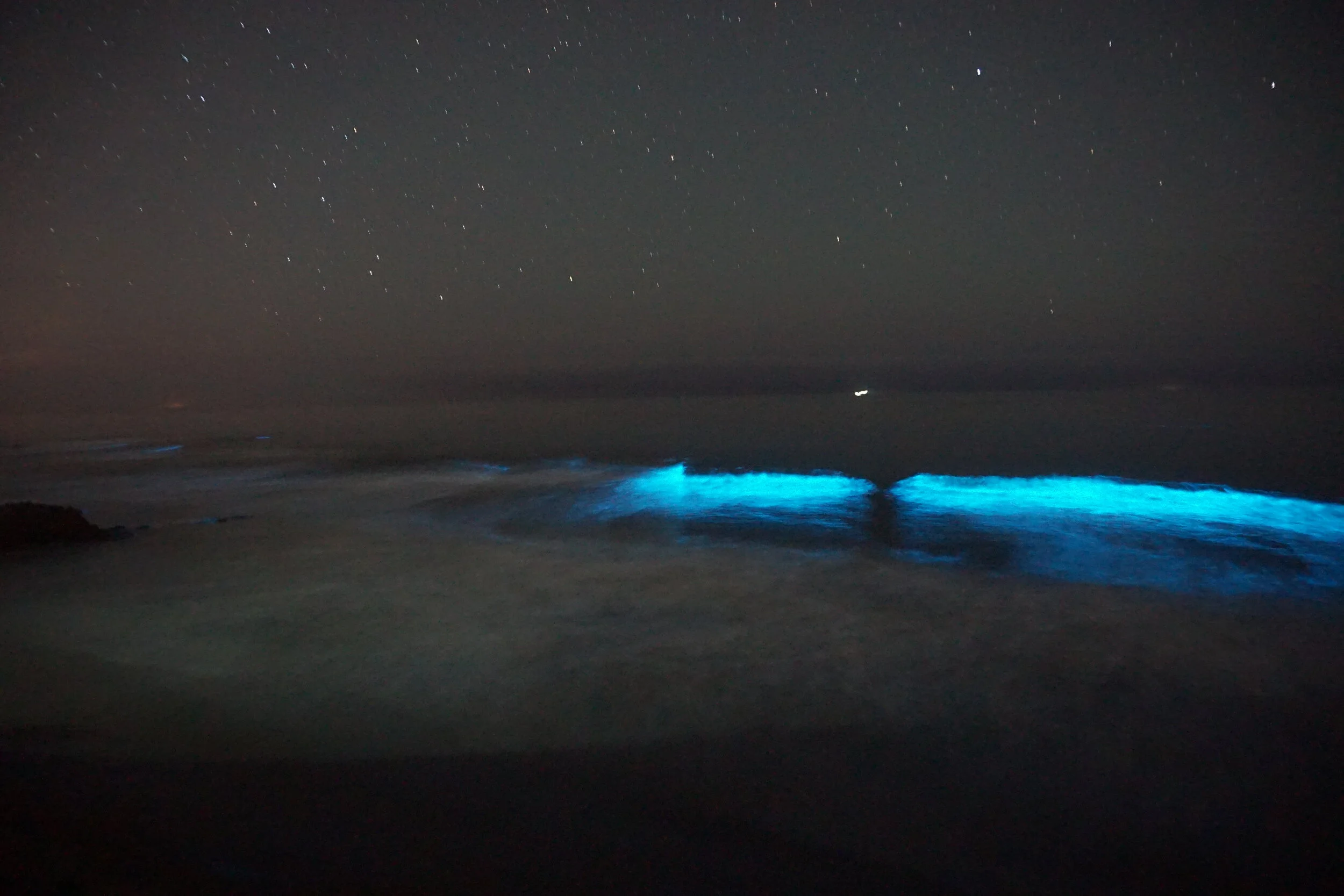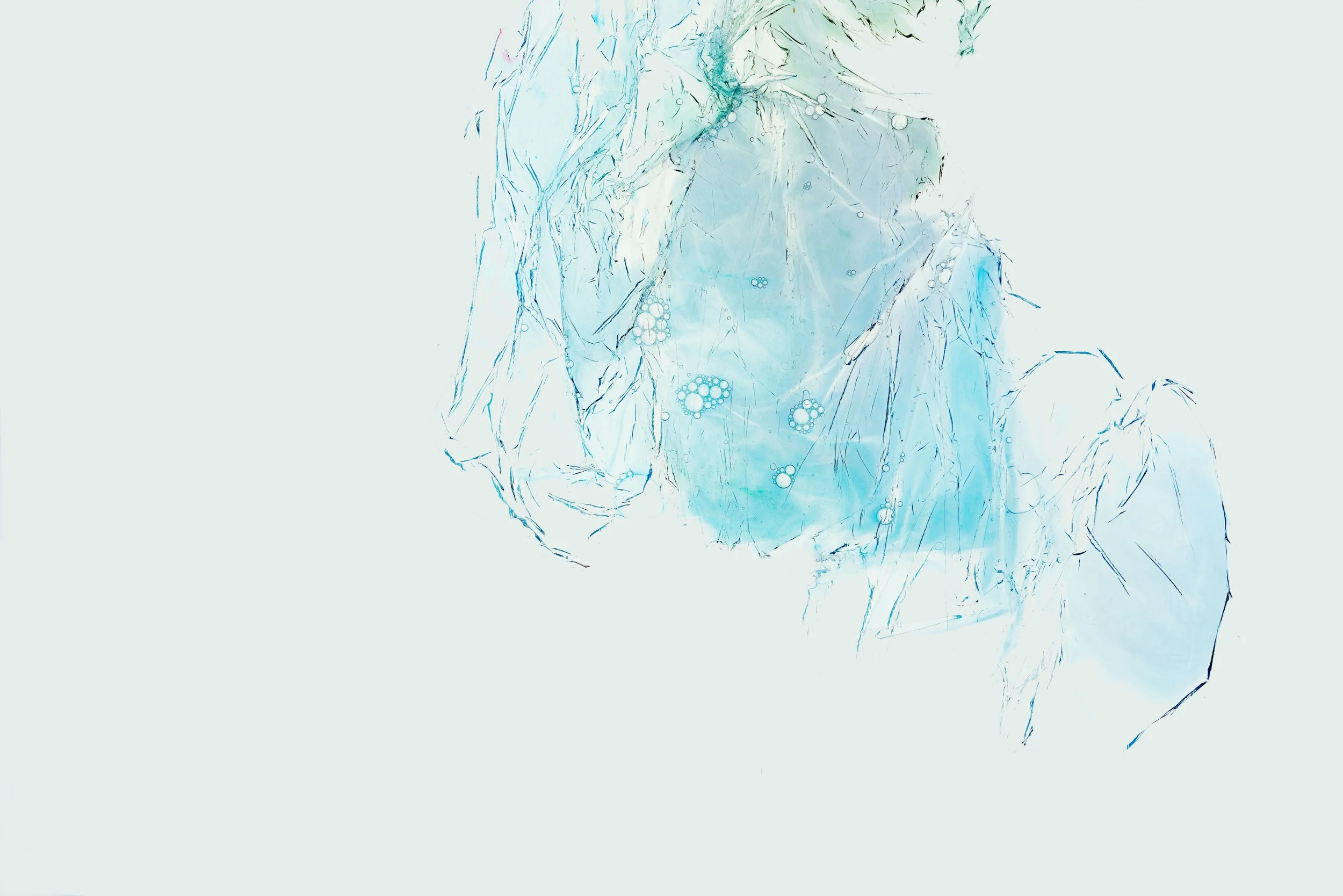The Ghost Ship
When we got there the see was glowing, but we couldn’t see it. First, we looked for a spotlight casting the light on the breaking waves. Then, ten minutes later our eyes and brains reconciled the phenomena in front of us. The sea was lit from within -- bioluminescent as a result of a phytoplankton bloom, dinoflagellates to be precise. The scientific definition comes up short. What happened, I’m convinced, is that the northern lights fell into the sea.
This was the backdrop against which I began a new trip around the sun. Despite the apparent magic on the horizon, I woke up feeling a bit melancholy on my birthday. It was the strangest sensation. I was simultaneously basking in that rare delight of being exactly (and I do mean exactly) where in the world I wanted to be, with exactly the people I wanted to be with, feeling extraordinarily loved and lucky. And also a bit blue.
I couldn’t quite put my finger on it. To be more specific, I didn’t want to put my finger on it. But I stepped outside, cup of coffee and composition notebook in hand and began to write anyways. The root of the melancholy is the distance between where I am and where I expected I would be on this birthday. Not borne from a place of regret, I really and truly do not wish to be somewhere else, but derived from a sense of distance -- between here and what might’ve been. If handed a magic wand, there are very few things that I would change about the here and now, but still the the tiniest measure of anguish creeps in.
There’s an altogether extraordinary column of Dear Sugar in which Cheryl Strayed writes about a poem by Tomas Tranströmer called “The Blue House.” She says,
Every life, Tranströmer writes, “has a sister ship,” one that follows “quite another route” than the one we ended up taking. We want it to be otherwise, but it cannot be: the people we might have been live a different, phantom life than the people we are…
I’ll never know and neither will you of the life you don’t choose. We’ll only know that whatever that sister life was, it was important and beautiful and not ours. It was the ghost ship that didn’t carry us. There’s nothing to do but salute it from the shore.
I come back to this often when I feel snagged in the ravine between reality and expectation. Here, the act of saluting helps. It’s a sign of respect to both what is and what might’ve been -- and to the decisions I’ve made. Standing with arm raised is a return to the shore of now. Feet on the stone patio, back on the whitewashed wall, hair blown in my face by the salt air, eyes on the surfers paddling, riding, tumbling. Then waiting for the next wave.
In these first twenty-four hours of this new year of life, I was offered another way of interpreting the melancholy. In conversation with Krista Tippett, David Whyte says that,
I began to realize that the only places where things were actually real was at this frontier between what you think is you and what you think is not you, that whatever you desire of the world will not come to pass exactly as you will like it. But the other mercy is that whatever the world desires of you will also not come to pass, and what actually occurs is this meeting, this frontier. But it’s astonishing how much time human beings spend away from that frontier, abstracting themselves out of their bodies, out of their direct experience, and out of a deeper, broader, and wider possible future that’s waiting for them if they hold the conversation at that frontier level.
The melancholy is a conversation at the frontier between the me that is and the me that I expected would eventually come around. She has not come. But on Sunday morning looking across the Pacific Ocean, I began to release her obligation to do so. The path I’d expected closed up behind me. I was sad for that and I still am. But then I look up and I see that the ocean glowing.






